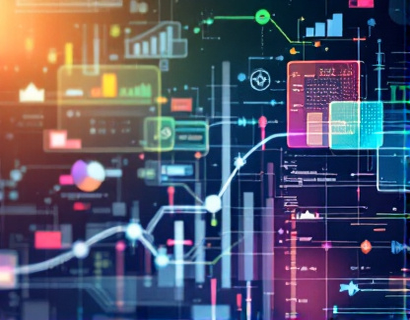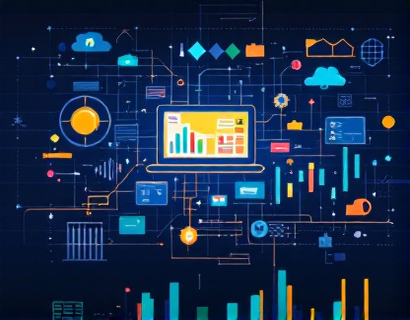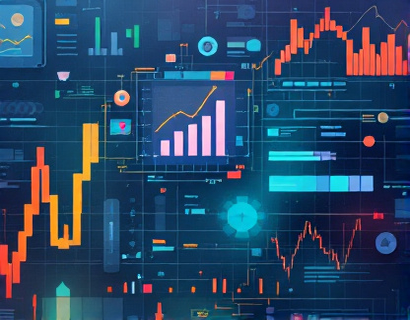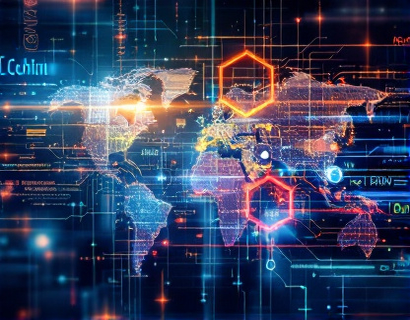Unveiling Transformative AI Solutions for Industry Leaders
The landscape of technology is rapidly evolving, with artificial intelligence (AI) emerging as a pivotal force driving innovation and efficiency across various sectors. This article delves into the transformative AI services showcased by tech pioneers, offering a comprehensive look at how these solutions can revolutionize industries and enhance productivity. Whether you are a tech enthusiast, a developer, a business leader, or an industry innovator, this resource aims to provide valuable insights into the latest advancements in AI and how they can be leveraged to achieve significant gains.
The Importance of AI in Modern Industries
AI has become an indispensable tool in the modern business environment. Its applications range from automating routine tasks to providing deep insights through data analysis. For industry leaders, embracing AI is not just an option but a necessity to stay competitive. The integration of AI technologies can lead to substantial improvements in operational efficiency, cost reduction, and customer satisfaction. This article explores the diverse array of AI services that are reshaping industries and propelling them into a new era of growth and innovation.
Enhancing Productivity with AI
One of the most significant benefits of AI is its ability to enhance productivity. By automating repetitive and time-consuming tasks, AI allows employees to focus on higher-value activities that drive business growth. For instance, in manufacturing, AI-powered robots can perform assembly line tasks with precision and speed, reducing human error and increasing output. In the service sector, chatbots and virtual assistants powered by AI can handle customer inquiries around the clock, providing instant responses and improving customer experience.
Moreover, AI-driven analytics tools can process vast amounts of data quickly, offering actionable insights that inform strategic decisions. This data-driven approach enables businesses to optimize their processes, identify new opportunities, and respond to market changes more effectively. For example, in the retail industry, AI can analyze consumer behavior and preferences to personalize marketing campaigns and inventory management, leading to higher sales and customer loyalty.
AI in Healthcare: A Game Changer
The healthcare industry stands to gain immensely from AI advancements. AI technologies are being used to improve diagnostic accuracy, personalize treatment plans, and streamline administrative tasks. Machine learning algorithms can analyze medical images with high precision, detecting anomalies that might be missed by human eyes. This not only enhances diagnostic accuracy but also reduces the workload on medical professionals, allowing them to focus on patient care.
Additionally, AI-powered predictive analytics can forecast patient outcomes and identify high-risk patients, enabling proactive interventions. In drug discovery, AI accelerates the research and development process by identifying potential drug candidates and predicting their efficacy. These innovations not only improve patient outcomes but also reduce healthcare costs and enhance the overall efficiency of the healthcare system.
Transforming the Financial Sector with AI
The financial industry is another sector where AI is making a significant impact. AI-driven solutions are revolutionizing how banks and financial institutions operate, from fraud detection to customer service. Machine learning algorithms can analyze transaction patterns in real-time, identifying suspicious activities and preventing fraud with high accuracy. This not only protects customers but also reduces the financial losses associated with fraudulent transactions.
AI-powered chatbots and virtual assistants are also transforming customer service in the financial sector. These tools can handle a wide range of customer queries, from account balances to investment advice, providing 24/7 support. By automating routine tasks, financial institutions can reduce operational costs and improve customer satisfaction. Furthermore, AI-driven risk assessment tools can evaluate creditworthiness more accurately, enabling better lending decisions and reducing default rates.
AI in the Manufacturing Industry
Manufacturing is one of the earliest adopters of AI technology, and the benefits are evident. AI-driven automation systems can optimize production lines, reducing downtime and increasing efficiency. Predictive maintenance, powered by AI, can anticipate equipment failures before they occur, minimizing disruptions and maintenance costs. This proactive approach ensures that machinery operates at peak performance, enhancing overall productivity.
AI also plays a crucial role in quality control. Computer vision systems can inspect products on the assembly line, detecting defects with high precision. This not only improves product quality but also reduces the need for manual inspections, saving time and resources. Additionally, AI can optimize supply chain management by predicting demand, managing inventory, and streamlining logistics, leading to cost savings and improved customer satisfaction.
AI in Agriculture: Precision and Efficiency
The agricultural sector is increasingly turning to AI to address challenges such as crop yield optimization and resource management. AI-powered drones and satellite imagery can monitor crop health, detecting issues like pest infestations or nutrient deficiencies early on. This allows farmers to take timely action, reducing crop losses and improving yields. AI-driven precision agriculture tools can also optimize irrigation and fertilization, ensuring that resources are used efficiently and sustainably.
Moreover, AI can analyze weather patterns and historical data to predict crop yields and market trends, helping farmers make informed decisions. By leveraging these insights, farmers can plan their planting and harvesting schedules more effectively, maximizing their returns. AI also aids in livestock management, monitoring animal health and behavior to ensure optimal conditions and prevent diseases.
AI in the Energy Sector
The energy industry is another area where AI is driving transformative changes. AI technologies are being used to optimize energy production, distribution, and consumption. In renewable energy, AI can predict energy generation from sources like solar and wind, helping grid operators balance supply and demand more effectively. This not only improves the reliability of renewable energy but also enhances its integration into the grid.
AI-powered predictive maintenance can also extend the lifespan of energy infrastructure by identifying potential issues before they lead to failures. In the oil and gas sector, AI can optimize drilling operations, reducing costs and environmental impact. Additionally, AI-driven analytics can enhance energy efficiency in buildings and cities by optimizing heating, ventilation, and air conditioning systems, leading to significant energy savings.
AI in Education: Personalized Learning
Education is yet another field where AI is making a profound impact. AI-powered learning platforms can provide personalized education experiences tailored to each student's needs and learning pace. Adaptive learning algorithms analyze student performance data to identify strengths and weaknesses, adjusting the curriculum accordingly. This personalized approach ensures that students receive the support they need to succeed, leading to better learning outcomes.
AI can also automate administrative tasks in educational institutions, such as grading and student record management, freeing up teachers to focus on teaching. Virtual tutors and educational chatbots can provide additional support outside the classroom, answering questions and offering guidance. These tools not only enhance the learning experience but also make education more accessible and inclusive.
Challenges and Considerations
While the potential benefits of AI are vast, there are also challenges and considerations that must be addressed. One of the primary concerns is the ethical use of AI, ensuring that these technologies are developed and deployed responsibly. Issues such as data privacy, bias in algorithms, and the impact on employment are critical areas that require careful attention.
Transparency and accountability are essential in AI development. Organizations must be transparent about how AI systems are used and the data they process. Regular audits and compliance with regulations can help mitigate risks and build trust among users. Additionally, continuous education and training for employees are necessary to ensure they can effectively work alongside AI technologies.
Conclusion
The integration of AI services across various industries is transforming the way businesses operate, driving innovation and efficiency. From enhancing productivity and improving customer experiences to revolutionizing healthcare and agriculture, the potential of AI is vast. As tech pioneers continue to develop and refine these solutions, industry leaders have the opportunity to harness AI's power to achieve their goals and stay ahead in a rapidly changing world. Embracing AI is not just a choice but a strategic imperative for those looking to thrive in the future.










































